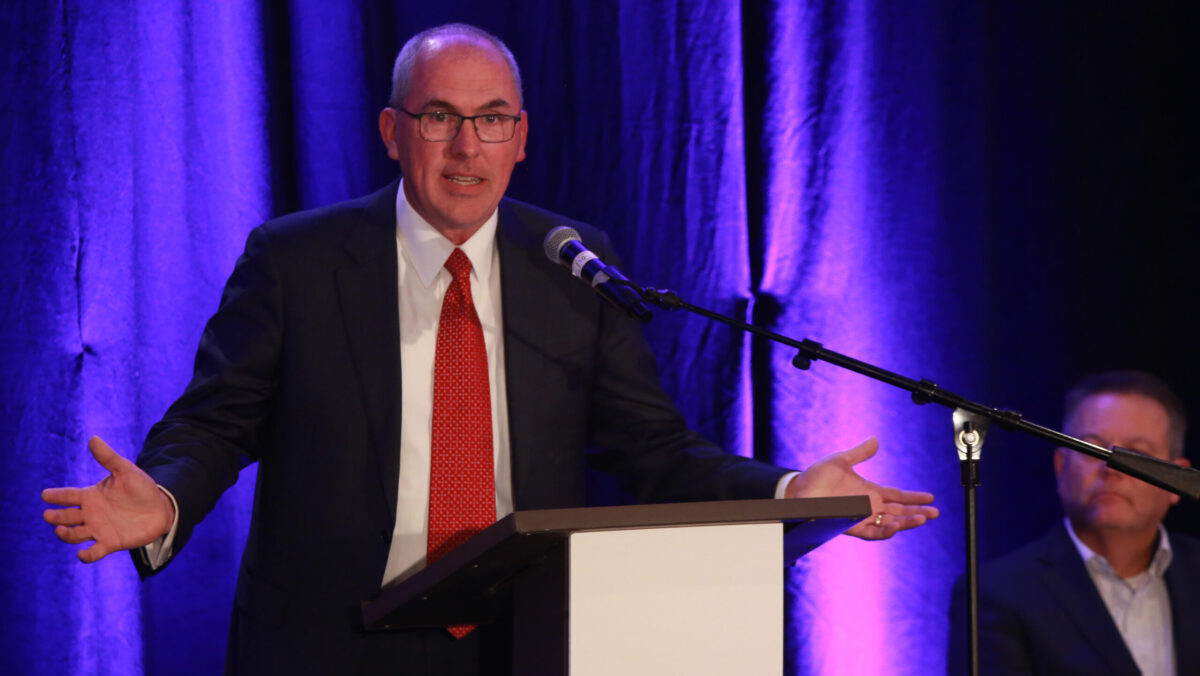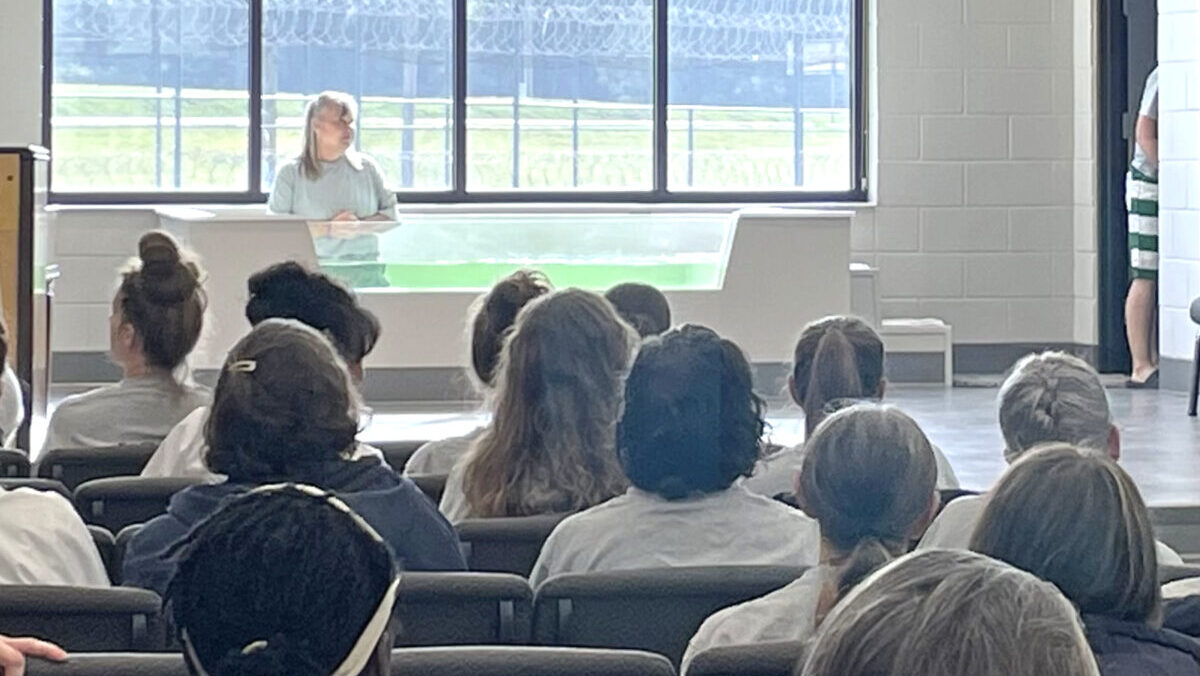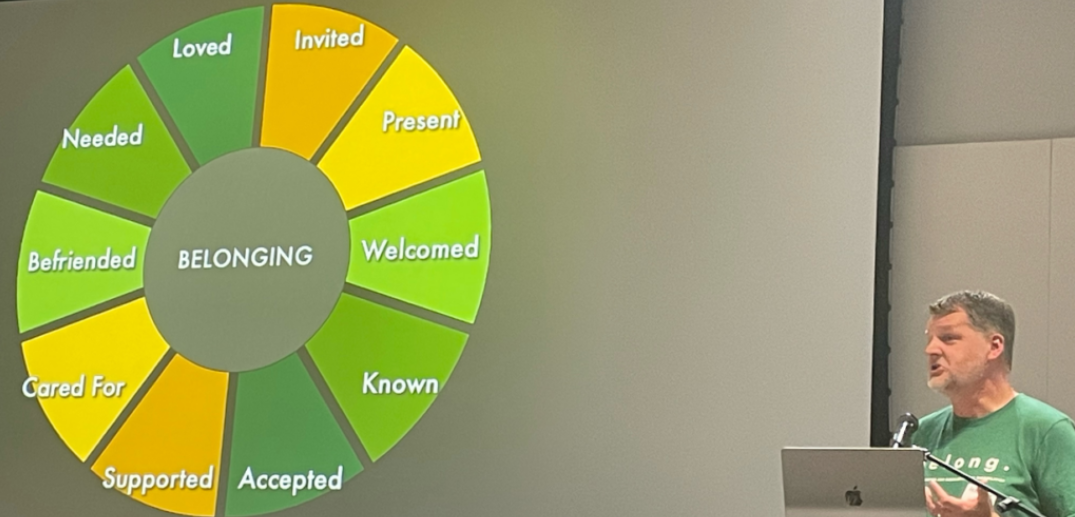As the Southern Baptist Convention Executive Committee gathered Monday night (Sept. 18) in Nashville amid economic challenges, ongoing conflicts and a barrage of troubling headlines, Bart Barber challenged trustees to “look past those who tear down” and focus on cooperation — and the One “who will go before us and give us the victory.”
During his message, the SBC president reflected on how Southern Baptists have emerged time after time in cooperation after being rocked by economic disaster, doctrinal conflict and leadership scandals. Among those examples included the 1920s–30s. He specifically recalled when both the Foreign Mission Board and Home Mission Board (now the International Mission Board and North American Mission Board) were leveled with financial scandal after corrupt leaders not only stole money but also the trust of many Southern Baptists.
Both scandals caused “terrible damage to Convention finances and Convention confidence in the institutions that were leading us,” Barber said. “During this same period of time, Southern Baptists faced substantial internal conflict over doctrine.”
And more troubles would follow, he noted.
“What I’m describing to you is what the Southern Baptist Convention faced in the earliest days of its existence. This is where we started,” Barber said. “… All across the Southern Baptist Convention, we rightfully wondered if our institutions, our people and our mission would survive.”
‘Bold and courageous’ responses
Barber also recalled how during those years, Southern Baptist churches also sacrificed and responded in troubled times through creating the Cooperative Program, the SBC’s unified plan for supporting missions and ministry, and adopting the Baptist Faith and Message, the Convention’s statement of faith.
“Amidst all of these controversies, instead of allowing themselves to become embattled and distracted, Southern Baptists chose to be bold and courageous at the very moment when people would be tempted to hunker down and ride out the storms,” he said.
“Those are the things that have endured down through the years,” he added. “These two things represent more than a motion on the floor or bureaucratic program, and they represent a clear and compelling statement of a dream for cooperation among Southern Baptist churches.”
The question now, Barber noted, is how will Southern Baptists today be remembered decades from now for how they responded during times of trouble.
“Those who follow us a century from now will probably be disinterested in our debates, important as they are, just as you are probably disinterested about some of the things people fought about in the 1920s and 1930s,” he said.
“But I believe if we’re able to bring our churches back to the table and find a working agreement to cooperate — one that reassures our fears and concerns and prioritizes the beliefs and mission that unite us — that is something that will still be touching people a century from now. It will outlive us all. It will outshine us all.”
Pointing to 1 Samuel 13–14, Barber hopes Southern Baptist will not be remembered for being overcome with fear but for being found faithful in trusting the Lord and overcoming the enemy — like Jonathan’s victory over the Philistines.
Looking ahead
While Southern Baptists today have their challenges, many of those struggles pale in comparison to those Southern Baptists faced in the 1920s and 1930s, Barber said.
“We do not lack money,” he noted.” Look at the houses our church members live in, the cars we drive. … Compare that to what Southern Baptists owned in the 1920s and 30s when they stepped up and led us out of trouble.
“What we lack, God help us, is inspiration.”
Barber urged Southern Baptists to not get caught up in today’s distractions and debates on social media — and to “lose interest in those who tear down.”
“We need to commit our hearts to the Great Savior who has given us the Great Commission, and if we do that, we need not gather in this place to tremble — because God will go before us and give us the victory.”








